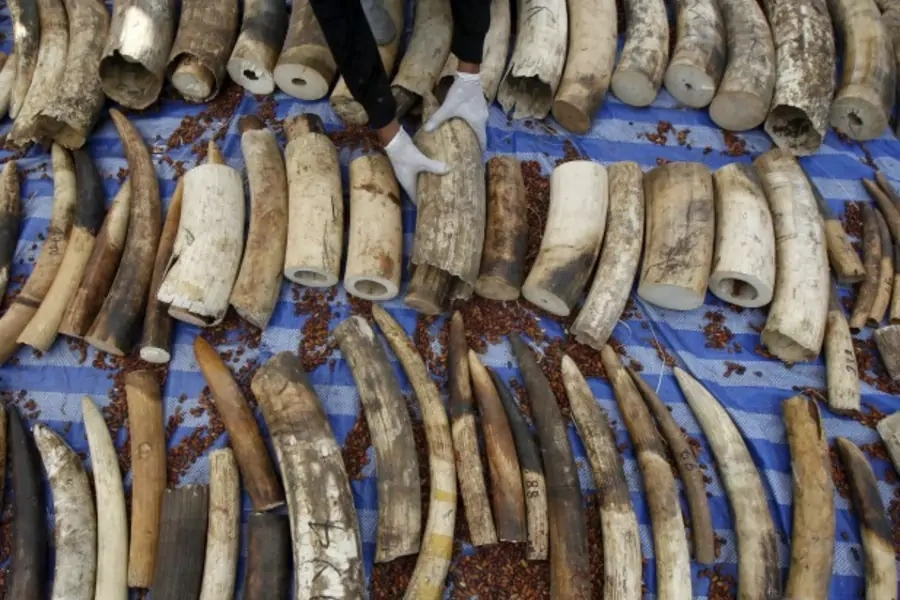More on:
This is a guest post by Allen Grane, research associate for the Council on Foreign Relations Africa Studies program.
Last week, authorities at Juba International Airport seized nearly a ton and a half of ivory in South Sudan. This seizure highlights some of the critical factors in the fight against wildlife trafficking.
The flight coming from Uganda was scheduled to fly to Malaysia via Cairo, one of the key entrepôt’s for wildlife trafficking in Africa. In 2014, C4ADS conducted a study called Out of Africa that highlighted the five airports from which most African ivory is trafficked to Asia. These are: Quatro de Fevereiro (Angola), Addis Ababa Bole International (Ethiopia), O.R. Tambo International (South Africa), Jomo Kenyatta International (Kenya), and Cairo International (Egypt). But, the Juba seizure highlights the importance of monitoring transit points for ivory smuggled within Africa. As the Juba seizure illustrates, ivory and other wildlife products may travel through many countries and transport hubs prior to ever leaving the continent. From the enforcement perspective, this means that there are more opportunities to prevent these products from reaching consumer markets.
In the case of Juba, it is worth noting that such a large shipment was transported by air. Based on the experience of previous seizures, this is relatively uncommon. For various reasons, including transport costs, airfreight has been less appealing for smugglers transporting large quantities of ivory. Up to now, the volume of trafficked wildlife has been much greater by sea than by air. In most cases of airborne trafficking the amount seized is under ten kilograms. The Juba shipment was more than 280 times that.
The Juba seizure highlights the importance of monitoring all potential routes for trafficked wildlife. As pressure from the international community and law enforcement agencies increases, wildlife traffickers will begin to try and find new locations to transport their cargo from and new strategies for distribution. Hence, a two and a half ton airfreight of ivory through Juba international airport.
More on:
 Online Store
Online Store
